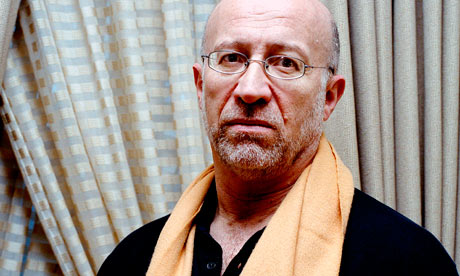3 Book Reviews
Tinkers, by Paul HardingOut Stealing Horses, by Per PettersenIll Fares the Land, by Tony JudtJust a quick mention of three books. The first is the Pulitzer Prize winning novel by Paul Harding onto which Geordie Williamson recently heaped indecent praise. Normally I’m in fairly close agreement with Geordie but in this case I couldn’t be further away. The story, if that is the correct word for a random collection of unaligned vignettes, is told by George Crosby as he lies on the hospital bed that has been placed in the centre of his living room. The family are gathering around to watch him die but even though we hear about them from time to time he has very little to do with them; George is off in history, hallucinating and re-remembering, getting his own personality mixed up with that of his father and his father before him in much the same way as he confuses the nephews who occasionally sit beside him through the nights.The writing is exquisite, I have to grant that. There are delicate and beautiful passages in amongst the schmozzle, but, really, most of the time I had no idea who anyone was and could care less. It’s not such a big book but even forcing myself to turn its limited number of pages was a struggle. It is what I think is often termed a ‘writer’s novel’, which means, I guess, that it’s literary in a studied way, full of language that is very aware of itself at the cost of something as basic as a plot.The same cannot be said for Per Pettersen’s wonderful novel Out Stealing Horses. Pettersen is Norwegian and the story takes place in the high country on the border between Norway and Sweden both in the present and in the late forties, in the aftermath of the War.It is a marvellous resonant work told by Trond Sander, an elderly man who has taken up residence in a run down cabin near a lake. Winter is approaching and he is attempting to get the place in order before the cold settles in, only his body is not the way it used to be, certainly it is not the way it was when, at fifteen years old, he stayed for a summer in the high country with his father. As is the way of these things his thoughts move easily between the past and the present, and it might be argued this is the same scenario that occurs in Tinkers, but in that book there is no story, very little unfolding. Here there is hard work and lust and misunderstanding; danger, too.It did not start out that way but by the end it seemed to me to be primarily about father’s and sons, an appreciation; a story with very little sentimentality but a real grasp of the moment. I loved this book and cannot recommend it highly enough.I also highly recommend Ill Fares the Land. Tony Judt died on August 6th. He is best known for Postwar, his remarkable history of Europe from 1945 to 2005, a book about which Neal Ascherson wrote: "As soon as you realise how good it is, this book will frighten you. This is not just a history. It is a highly intrusive biography ... 'Postwar' is us."Earlier this year, already stricken with ALS or Lou Gehrig’s Disease, he wrote and published Ill Fares the Land. It is a fierce polemic for the importance of politics, for the engagement of citizens in an awareness of our place in history, where we’ve come from and how we got here, written in that same lucid style which made Postwar such a profound read.If you, like myself, have been despairing about the asinine level of debate which is occurring on policy during this election campaign then Judt’s work is a the perfect antidote.There is an article on Judt here, and another here. Vale Tony, grateful we are for minds as astute as yours.
Tony Judt died on August 6th. He is best known for Postwar, his remarkable history of Europe from 1945 to 2005, a book about which Neal Ascherson wrote: "As soon as you realise how good it is, this book will frighten you. This is not just a history. It is a highly intrusive biography ... 'Postwar' is us."Earlier this year, already stricken with ALS or Lou Gehrig’s Disease, he wrote and published Ill Fares the Land. It is a fierce polemic for the importance of politics, for the engagement of citizens in an awareness of our place in history, where we’ve come from and how we got here, written in that same lucid style which made Postwar such a profound read.If you, like myself, have been despairing about the asinine level of debate which is occurring on policy during this election campaign then Judt’s work is a the perfect antidote.There is an article on Judt here, and another here. Vale Tony, grateful we are for minds as astute as yours.